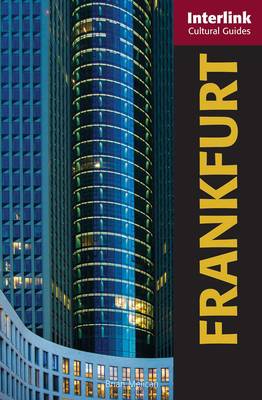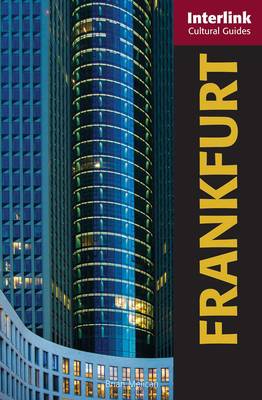
- Retrait gratuit dans votre magasin Club
- 7.000.000 titres dans notre catalogue
- Payer en toute sécurité
- Toujours un magasin près de chez vous
- Retrait gratuit dans votre magasin Club
- 7.000.0000 titres dans notre catalogue
- Payer en toute sécurité
- Toujours un magasin près de chez vous
23,95 €
+ 47 points
Description
Frankfurt is a city that punches well above its weight. Despite its diminutive size--it has fewer than a million inhabitants--it is a financial center of global importance, named alongside metropolises and capitals such as Tokyo, London, and New York. Yet Frankfurt is a city that is also continually underestimated: many of the millions who visit it on business--both German and from other countries--see little more of it than its airport and its skyscrapers. The city's role in the global financial markets often obscures its importance as a historical and cultural center, not just for Germany, but for Europe and the West as a whole. In the Middle Ages, Frankfurt was the city in which the Holy Roman Emperors were crowned and in which, at the dawn of the Renaissance, a tradition of printing and publishing was established which lives on in today's Frankfurt Book Fair. The German language's most enduring author, Johann Wolfgang von Goethe, was born in the city, and the university named for him gave birth to one of the twentieth century's most revolutionary academic developments, the Frankfurt School. Architecturally, too, the city has always been a pioneer: its famous skyline is only the latest and most visible in a series of bold experiments. Frankfurt has always been a capital without a country: the capital of the book trade, the capital of modern social studies, the capital of the Eurozone. Today, it rivals Brussels, Berlin, Paris, and London, and yet retains a deeply provincial, down-to-earth identity interwoven with the thick forests and farming country of its Hessian hinterland. While its population is one of the world's most international, its dialect is one of Germany's most impenetrable. For those looking to do more than just change flights or sign a contract, this cultural guide takes a closer look at Frankfurt, exploring and explaining these dichotomies.
Spécifications
Parties prenantes
- Auteur(s) :
- Editeur:
Contenu
- Nombre de pages :
- 224
- Langue:
- Anglais
- Collection :
Caractéristiques
- EAN:
- 9781566560825
- Date de parution :
- 01-03-16
- Format:
- Livre broché
- Format numérique:
- Trade paperback (VS)
- Dimensions :
- 135 mm x 203 mm
- Poids :
- 362 g

Les avis
Nous publions uniquement les avis qui respectent les conditions requises. Consultez nos conditions pour les avis.






